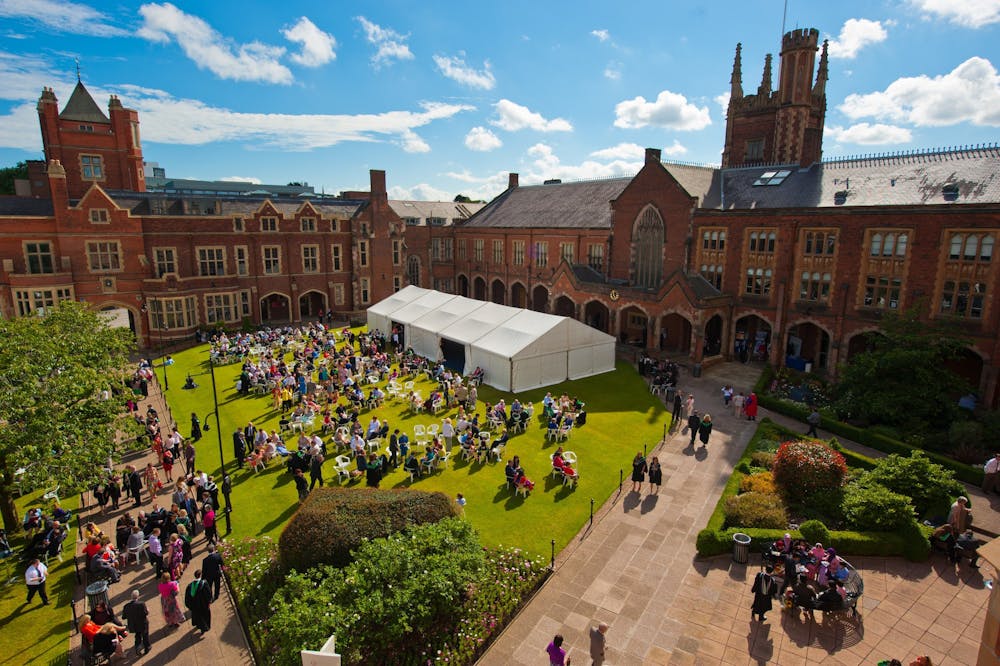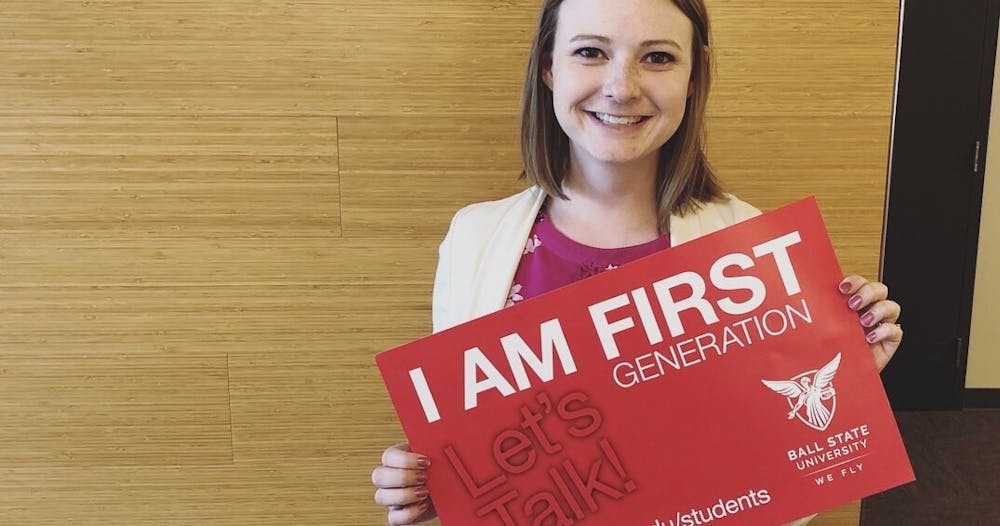Mylie Brennan, one of the Ball State students awarded a Fulbright scholarship this year, will travel to Queen's University Belfast in Northern Ireland in the fall 2020 semester to pursue a doctoral program in global peace, security, and justice.
“That interest grew during my master’s program at Ball State, particularly when I became interested in peace and conflict studies,” said Brennan, who is about to complete her master’s degree in communication. “When I realized that I wanted to take my research further, Queen’s was clearly the ideal school for my research.”
Queen’s University is the home of the George J. Mitchell Institute for Global Peace, Security and Justice. According to its website, the Mitchell Institute facilitates conversation from different diverse groups and works to solve problems related to subjects such as peace, human rights and ethical responses.
She said in an email she chose Queen’s University because of the institute and its professors who focus on a similar area of research as Brennan wishes to pursue.
At Queen’s, Brennan will focus her doctoral studies on political identities of young people in post-conflict Northern Ireland.

Mylie Brennan, graduate communication studies major, will be going to Queen’s University Belfast in Northern Ireland for her Fulbright scholarship. Brennan will undertake a doctoral program in global peace, security, and justice, with a focus on the political identities of young people in post-conflict Northern Ireland. Queen's University Belfast, Photo Courtesy
Between 1968-98, during a period known as “The Troubles,” Northern Ireland witnessed extreme violence between Irish Catholic nationalists and British Protestant unionists, claiming the lives of around 3,700 people, according to the Associated Press. This was followed by the Good Friday Agreement, a power-sharing agreement between the Irish and British governments, which quelled much, but not all of the violence.
Brennan said her research focuses on the generation born between 1998-2002 — the Good Friday Agreement generation — in Northern Ireland. This generation, she said, includes people born right after the violence ended, but were too young to vote in the 2016 Brexit referendum. “Brexit has been very difficult for Northern Ireland for many reasons, and these young people did not have a say,” Brennan said.
She said she wants to know whether this generation is influenced by sectarianism — defined as adherence to one’s sect — or sectarian political identity.
“This generation is caught between two major historic events in Northern Ireland, and I want to understand whether they fall along the same sectarian political identities of the past (Irish Catholic versus British Protestant), or if they're moving away from sectarianism toward a different political ideology altogether," Brennan said.
She said this research will help people understand whether or not Northern Ireland is moving forward in peaceful direction or reverting to sectarianism.
She said this research will help people learn about the interaction between this generation and government on a global scale.
“I lived in Ireland for two years, but the culture of Ireland is very different from that of Northern Ireland,” Brennan said. “I’ve found Northern Ireland to be warm and welcoming in my brief visits, and I’m hoping to utilize that welcoming nature to learn more about what life is like in a post-conflict society.”
Brennan said she feels lucky to live in Northern Ireland because she could learn more about the culture of the region.
“Whatever happens, I plan to continue to educate others about issues surrounding peace and conflict, whether that’s as a university professor, a nonprofit worker, a governmental advisor or some combination of the three,” Brennan said.
Brennan’s passion for her research field is conducive to her being able to obtain scholarships. She said she spent months refining her application in hopes the reviewers would see her passion and know the importance of her project.
Marcy Meyer, who is Brennan’s thesis advisor and has previously served as a reviewer for the Fulbright National Screening Committee, said in an email she recognized Brennan as a strong candidate for the award.
“She possesses a rare combination of traits and skills needed to conduct doctoral research that promotes intercultural and interfaith dialogue in Northern Ireland,” Meyer said. “I believe that her ability to earn a doctoral degree from Queen's University will one day enable her to serve in a global leadership role among women in academia who promote world peace.”
Contact Weiyu Ding with comments at wding@bsu.edu or on Twitter @WeiyuDing.





The Daily News welcomes thoughtful discussion on all of our stories, but please keep comments civil and on-topic. Read our full guidelines here.